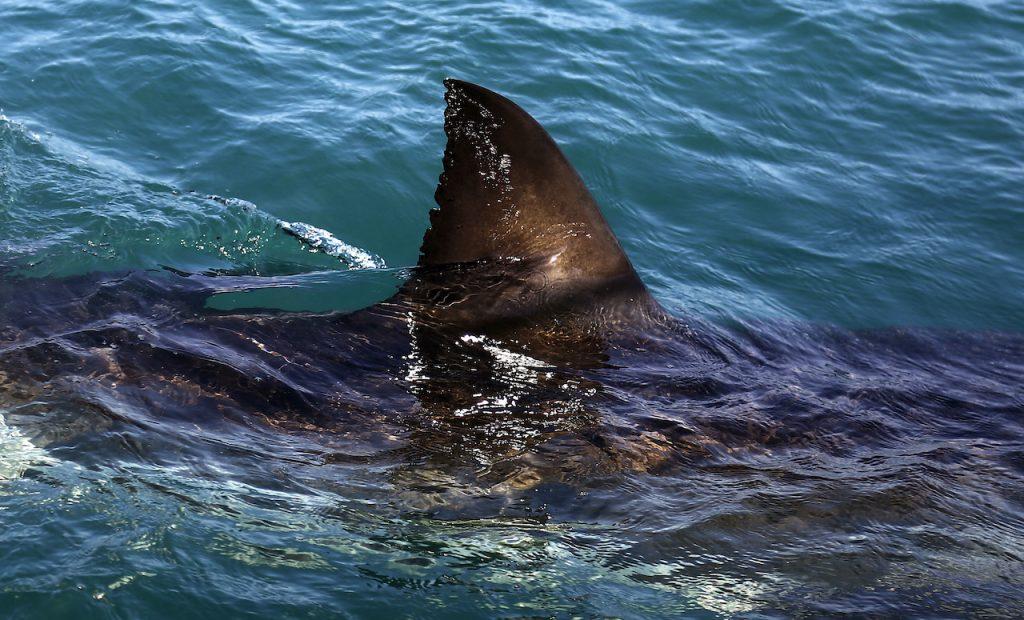Forget Jaws: sensitive shark advocates want to rename violent attacks ‘interactions’
Shark researchers say the change to more sensitive language will help 'dispel assumptions that sharks are ravenous, mindless monsters'.
Marine experts in Australia are urging the public to stop using the word “attack” in reference to sharks, declaring that the toothy predator has been unfairly maligned as a deliberate killer.
They are suggesting that encounters with sharks, no matter how bloody, be dubbed with less emotive words such as “interactions”.
Others have suggested “negative encounter” or “incident”, the Sydney Morning Herald recently reported.
”To say ‘shark attack’ is a lie,” said Christopher Pepin-Neff of the University of Sydney, who argued that a majority of what people call “attacks” are merely nips and minor injuries from smaller sharks.
He said such phenomena were once called “shark accidents”, prior to the 1930s when prominent Sydney surgeon Victor Coppleson began calling them “attacks”.
The change of language marked a shift in mood as shark nets were also being strung across the shallows of Australian beaches at that time.
Leonardo Guida, shark researcher at the Australian Marine Conservation Society,
said the change to more sensitive language is important “because it helps dispel assumptions that sharks are ravenous, mindless monsters”.
Describing shark interactions more accurately “helps improve the public’s understanding of sharks and how they behave”, he added.
Guida was present at Noosa Biosphere Reserve Foundation’s annual shark symposium in May where researchers discussed the shark attack rebrand, favouring the softer term “bite” over “attack” to describe injurious meetings with sharks.
The vast majority of shark encounters, which nobody seems to be suggesting should be called “playful”, can be chalked up to their curiosity, advocates say.
As the 450 million-year-old species has not yet developed hands, “if they want to explore something, they mouth it”, Nathan Hart, a professor at Macquarie University said. “Very rarely are entire humans consumed by sharks.”
The sensitivity shift is already being seen among water enthusiasts, such as surfer Cooper Allen, who prefers the droll Australian approach when describing a shark encounter that left him with deep leg wounds.
“I just tell people that I had a bit of a run-in with a man in a grey suit,” he said.
One person who may have disagreed with the jokey description had he lived was a man killed by a shark while wading into the surf to relieve himself.
“There was a lot of blood in the water,” bystander Endriano Gomes told Newsflash of the horrific attack, which occurred on Saturday in northeastern Brazil.
The victim, Marcelo Rocha Santos, 51, had reportedly been drinking with friends when nature called.
His drinking buddy, Ademir Sebastiao da Silva, said, “As the beach has no bathroom, we went into the sea to pee. I was beside him in the water.”
Despite signs warnings people to stay out of the ocean, the lifeguard on duty refrained from ordering the two men back to the beach as they were only up to their waists.
That’s when the shark struck – biting off Santos’ hand and tearing off a chunk of his leg.
Da Silva, who was the only other person in the water at the time, escaped the ‘interaction’ unscathed.
“It could have been me. It was God’s deliverance,” he said. “If I had been diving or lingered in the water, I could also have been attacked.”
Australian marine experts are no doubt still recovering from his horrific use of the insensitive term “attacked”.
Subscribe to our newsletter
To be updated with all the latest news and analyses daily.
